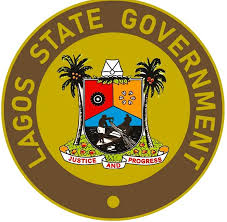
In a significant move to avert severe congestion by articulated trucks and improve the efficiency of logistics operations within the Lekki-Epe Free Trade Zone corridor, the Lagos State Government has announced the commencement of the E-call-up system for managing truck movements within the axis from 1st August, 2024.
The State Commissioner for Transportation, Mr. Oluwaseun Osiyemi made this known over the weekend, stating that the move is driven by the urgent need to implement a sustainable, effective and technology-driven solution of truck movement in the Lekki-Epe Corridor.

He further disclosed that the application of an E-call-up system will help synchronise the movement of trucks accessing the Lekki Deep Seaport and other industries within the corridor starting from Eleko junction to Lekki Free Trade Zone.
Osiyemi also highlighted the State and Federal Government plans for road network expansion and intermodal transport systems to streamline vehicular traffic and enhance free movement in one of Lagos’ most critical economic zones.
Also speaking on the development, the Special Adviser to the Governor on Transportation, Hon. Sola Giwa, who is saddled with the enforcement of the E-call-up system of the corridor, said that an interim arrangement is being put in place to decongest the roads through evacuation of all illegal tankers from the red zone by a joint TASKFORCE of the State, LGAs/LACDAs, Security Agencies and Stakeholders, urging truck operators and logistics companies to comply with the new system to ensure its success.
The E-call-up system, an advanced digital platform, is designed to regulate the entry and exit of trucks in the Lekki-Epe area by scheduling and coordinating their movements. This system will help prevent the chaotic traffic situations often caused by the indiscriminate parking and movement of trucks within the corridor.
The Lekki-Epe corridor, a key economic hub in Lagos, is home to numerous industries, including the Lekki Free Trade Zone, the Dangote Refinery and the Lekki Deep Sea Port. The efficient movement of goods and services in this area is crucial for the state’s economy, making the E-call-up system an essential tool for sustainable development.


